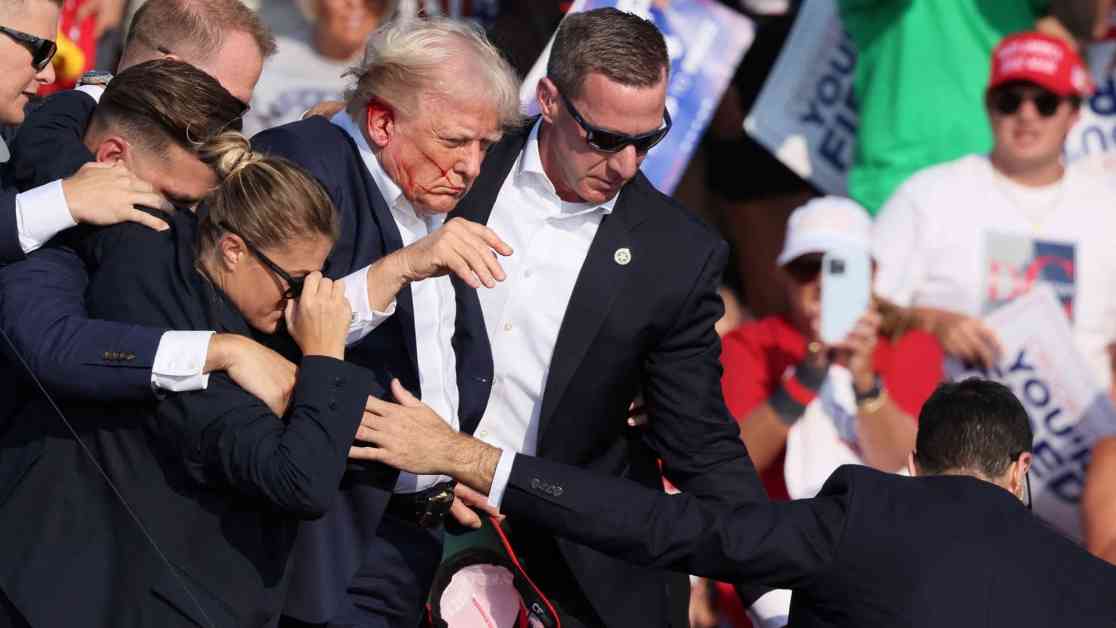Secret Service Failure in Preventing Trump Assassination Attempt
Republican presidential candidate and former U.S. President Donald Trump narrowly escaped an assassination attempt at a campaign rally in Butler, Pennsylvania, on July 13, 2024. Shots were fired during the event, leading to chaos and tragedy as one attendee lost their life and several others were critically injured. The U.S. Secret Service, responsible for ensuring the safety of high-profile individuals, admitted fault for the security breach that allowed the assailant to harm Trump and his supporters.
The Secret Service acknowledged that there were internal breakdowns in their operations that contributed to the failure to prevent the attack on Trump. Ronald Rowe, the agency’s acting director, publicly accepted responsibility for the incident, citing “complacency” among some agents and communication gaps with local law enforcement as key factors. This admission marked a significant moment as the agency rarely discloses such failures to the public.
Security protocols at the campaign rally were compromised due to a lack of clear guidance from the Secret Service to local law enforcement partners. This lack of coordination led to a breakdown in communication, ultimately allowing the shooter, Thomas Crooks, to carry out the violent act. The failure to address known line-of-sight issues at the rally site further exacerbated the security vulnerabilities, putting Trump and his supporters at risk.
Following the incident, changes were implemented within the Secret Service to address the shortcomings that led to the near-tragic outcome. Accountability measures were put in place to ensure that all employees adhere to security protocols and maintain vigilance in their duties. Rowe emphasized the need for a “paradigm shift” in how the agency operates to adapt to the evolving threat landscape and prevent future security breaches.
In addition to the campaign rally incident, another attempted assassination against Trump occurred at his golf club in West Palm Beach, Florida. A Secret Service agent intervened and apprehended the suspect, highlighting the ongoing threats faced by high-profile individuals like Trump. The FBI is actively investigating both incidents to determine the motives behind the attacks and prevent similar occurrences in the future.
As the Secret Service grapples with the aftermath of these security breaches, the public remains concerned about the safety of political figures and the effectiveness of security measures in place. The agency’s acknowledgment of its failures and commitment to improving its operations are crucial steps towards restoring public trust and ensuring the protection of individuals under its care.
Lessons Learned and Ongoing Investigations
The near-assassination of former President Donald Trump has prompted a reevaluation of security protocols and coordination within the Secret Service. The agency’s admission of fault in the incident reflects a commitment to learning from mistakes and implementing necessary changes to prevent similar occurrences in the future. The ongoing investigations by the FBI into the motives behind the attacks will provide valuable insights into the threats faced by high-profile individuals and inform future security measures.
Impact on Political Landscape
The attempted assassination of Donald Trump has sent shockwaves through the political landscape, raising concerns about the safety of political figures and the effectiveness of security measures in place. The incident has reignited debates about the need for enhanced security protocols and coordination between law enforcement agencies to prevent violent attacks on public figures. The public’s response to the incident underscores the importance of prioritizing security and vigilance in an increasingly volatile political climate.
Future of Secret Service Operations
The Secret Service’s acknowledgment of its failures in preventing the assassination attempt on Trump marks a turning point in the agency’s operations. The commitment to accountability and improvement in security protocols signals a proactive approach to addressing security vulnerabilities and enhancing protection for high-profile individuals. As the agency undergoes internal changes and reassesses its operations, the public can expect a more robust and vigilant Secret Service dedicated to safeguarding the lives of those under its protection.






















